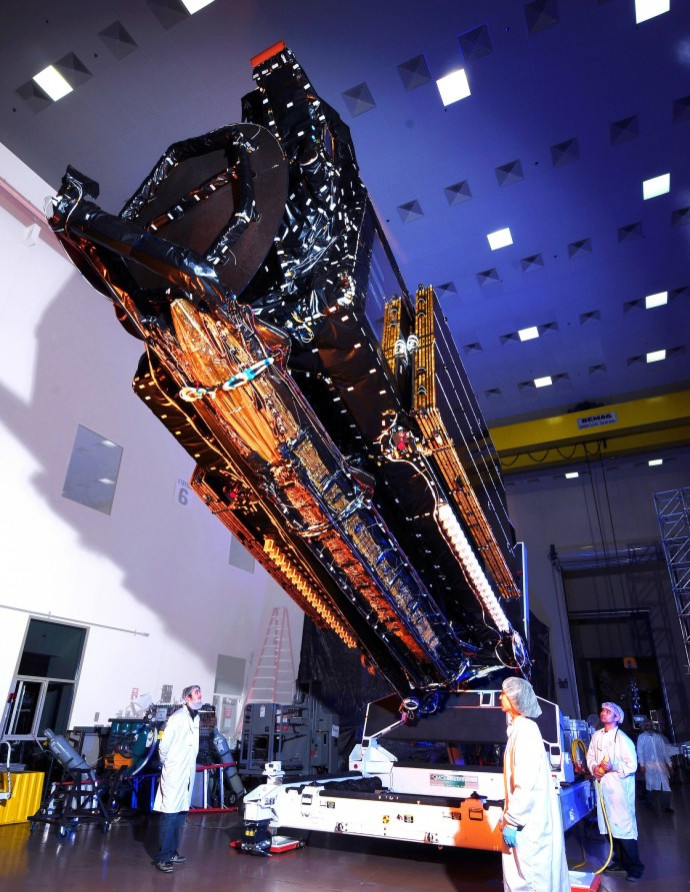EchoStar Won't Back TerreStar Bankruptcy Plan

EchoStar has pulled out of an agreement to backstop the TerreStar Networks' bankruptcy plan, leaving the company and its creditors in the position of having to either craft a new plan of reorganization, find a buyer, or some combination thereof.
EchoStar Corp., which had agreed to put in $125 million to help TerreStar emerge from bankruptcy, pulled out of that deal this week. A vote of the creditors on the plan of reorganization had been scheduled for today. But this week in New York State Bankruptcy Court, TerreStar's attorneys said they could not come to an agreement with a group of creditors that was fighting the bankruptcy plan.
Under bankruptcy law, a secured creditor can't be forced to take equity in a reorganized entity unless more than half of the entities holding the debt representing at least two thirds of the value of that debt agree to do so. EchoStar is a secured creditor that owned slightly more than half of TerreStar's secured debt, but other a group of other creditors opposed the reorganization plan.
According to court papers, the backstop agreement was terminated mutually. EchoStar's notes in a Securities and Exchange Commission filing that TerreStar Networks' parent company, TerreStar Corporation, as well as a subsidiary, TerreStar Holdings, also filed for chapter 11 protection.
TerreStar was supposed to provide a combination satellite and Earth-based communications network that would offer both voice and satellite service. TerreStar Networks filed for bankruptcy on Oct. 19. The company was carrying $1.2 billion in debt.
At a hearing in December in New York State Bankruptcy Court, the parties agreed that EchoStar would promise to buy $125 million of preferred stock, backstopping the reorganization plan. The confirmation hearing, at which the court would formally decide whether to put reorganization in place, was to happen on March 7.
The agreement came after marathon sessions of negotiations between several investment firms, TerreStar, and Sprint Nextel. Attorneys for the creditors and TerreStar both said the agreement addresses concerns that too little time was being allowed to find a buyer for the company, and that the planned rights offering wouldn't raise enough money to get the company out of chapter 11.
Getting the two sides to agree on the backstop plan was a major step. Without one it was far more difficult to get a bankruptcy plan approved because there is no certainty of recovering any money at all for creditors.
The only remaining objections were from Sprint. Sprint has two claims against TerreStar; one is $100 million owed to Sprint for clearing out the spectrum TerreStar is licensed to use.
Another claim was that one of the subsidiaries of TerreStar that is in bankruptcy, called 0887729 B.C. Limited, shouldn't be part of the same bankruptcy as TerreStar. The 088 entity holds some satellite ground station equipment Sprint says is worth $79.5 million. Sprint says that because of a reimbursement agreement with TerreStar, it is the only creditor of 088 and so should be in a separate proceeding.
Both objections were scheduled to go forward while TerreStar sought bidders. Now TerreStar has to find a buyer or work out an alternative plan with EchoStar, or some combination of both.
Under the original plan of reorganization TerreStar's debt would be converted to equity, with 97% of it to the current debt holders. Most of that value would have gone to EchoStar, which owns a majority of TerreStar's $943.9 million of secured debt in the form of 15% bonds. Other debts are $178.7 million of 6.5% senior exchangeable notes and an $85.9 million purchase money credit agreement.
TerreStar was to sell preferred stock to raise cash to emerge from bankruptcy. Originally only EchoStar was committed to backstop the offering, which meant it would buy in for $100 million, with an option to buy an additional $25 million. Raising the offer to $125 million got the other creditors, who were concerned that it might not be enough to keep the company afloat, to back the plan. Other holders of the 15% bonds can also decide if they also want to buy the preferred stock as well, and if they do they commit to buying a pro-rated share.
As the creditors -- especially those who make up the ad-hoc committee of unsecured creditors -- were not being asked to sign a plan support agreement immediately, they also felt that enough time was being allowed to seek a buyer.
Now TerreStar may have to come up with another plan that gets the creditors some recovery. TerreStar's major asset is the radio spectrum that was granted it by the Federal Communications Commission. That value varies; in fact it is the fact that it has fallen below what it was a few years ago that has helped push TerreStar's various sub-entities into bankruptcy. Sprint's claim will also complicate matters.
Among the possible buyers for TerreStar are MetroPCS, which published reports in January said might be interested. But MetroPCS CEO Roger Linquist said at an investor conference in November that the company didn't need radio spectrum, at least not urgently.
In its favor, TerreStar has a better idea of who the potential buyers are than it did in October, it has had discussions with carious creditors as the litigation has progressed, and it still has the debtor-in-possession financing negotiated with EchoStar.
To contact the reporter responsible for this story call (646) 461 6917 or email j.emspak@ibtimes.com.
© Copyright IBTimes 2025. All rights reserved.





















